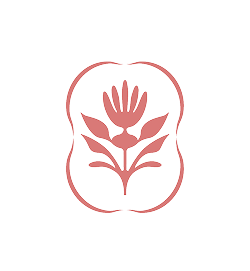Bowel Dysfunction Physiotherapy in Singapore
Bowel issues can be isolating, but you’re not alone. At Calyx, we offer evidence-based physiotherapy to support women, whether postpartum or managing chronic conditions.
What Is Bowel Dysfunction Physiotherapy?
Bowel dysfunction physiotherapy addresses the musculoskeletal and neuromuscular causes of bowel control issues such as constipation, incontinence, urgency, or incomplete emptying. By targeting the pelvic floor muscles, abdominal coordination and breathing mechanics, treatment aims to restore optimal function.
Is This Safe for Me?
Yes. Physiotherapy for bowel dysfunction is non-invasive and safe. We customise your care based on your comfort, medical history and goals.
Who Should Consider Bowel Dysfunction Physiotherapy?
Women who experience bowel symptoms like straining, constipation, leakage or a sense of incomplete emptying after pregnancy can benefit from pelvic physiotherapy.
-
Do I Need a Referral?
No referral is needed. You can book directly with us. If needed, we’re happy to coordinate care with your OBGYN or GP.
-
When should I seek help for bowel issues after birth?
If you’re still experiencing bowel problems beyond the early recovery phase (2–4 weeks postpartum), or if symptoms are affecting your quality of life, it’s time to consult a women’s health physiotherapist.
Symptoms and Signs You May Benefit from Bowel Physiotherapy
Common signs include:
- Straining during bowel movements
- Constipation or hard stools
- Urgency or bowel incontinence
- Incomplete emptying
- Abdominal bloating with poor bowel patterns
These symptoms may be related to changes in pelvic floor function, coordination, or nerve function, often impacted during pregnancy or after birth.
What Happens During Your Session
Your session will include a full assessment, targeted treatment, movement guidance and a clear plan to support ongoing recovery.
-
Will There Be an Internal Pelvic Floor Assessment?
Depending on your symptoms, your physiotherapist may recommend an internal vaginal and/or rectal assessment to better understand how your pelvic floor muscles are working during bowel movements. This is always discussed with you in advance and only done with your full consent.
-
Do I Need to Prepare or Bring Anything?
Please wear comfortable clothing. If you’re tracking bowel movements, bring a short diary of your symptoms for us to review together.
-
What Happens After the Session?
We provide a personalised plan including home exercises, lifestyle adjustments, and review timelines. Follow-ups are scheduled based on your progress and goals.
Techniques and Tools We May Use
- Manual therapy
- Pelvic floor muscles retraining
- Real-time ultrasound for pelvic floor biofeedback
- Defecation dynamics education
- Simple dietary advice
-
Is It Painful or Uncomfortable?
Treatments are designed to relieve discomfort, not cause it. Most clients report feeling a sense of relief, control and progress after their sessions.
-
How We Ensure Safety in Each Method
We follow strict hygiene protocols, gain informed consent and uphold a high standard of clinical practice.
Your Progress and Results Over Time
-
How Soon Will I See Improvement?
Improvement depends on the severity, chronicity, and underlying causes of your symptoms. In some cases, support from a gynaecologist may be needed. Your physiotherapist will work closely with you to set realistic expectations and guide you through each step of your recovery.
-
How Often Will I Need Sessions?
The frequency of sessions depends on several factors, including your symptoms, goals, medical history, lifestyle demands, and how your body responds to treatment.
Your physiotherapist will first complete a thorough assessment to understand your condition fully before recommending a personalised treatment plan.
-
Will I Need Maintenance Visits?
After early recovery, continued support can help you regain strength and confidence as you care for your baby and step into your new (or expanded) role as a mum. You may benefit from one-to-one check-ins or join Regrounded After Birth, our signature programme designed to support healing, movement, and a safe return to daily life and higher-level exercise.
-
What Do I Need to Do at Home?
We may prescribe breathing drills, bowel routine adjustments, pelvic floor relaxation and coordination exercises.
Why Women Trust Calyx for Bowel Dysfunction Physiotherapy
At Calyx, we provide personalised, evidence-based care tailored for postpartum mothers. Our physiotherapists are trained not only in musculoskeletal health but also in the unique changes a woman’s body experiences after childbirth.
Are Sessions Covered by Insurance?
Postpartum physiotherapy coverage depends on your insurer and plan. We recommend checking directly with your provider. If needed, we’re happy to provide detailed invoices to support your claim.
What Makes Calyx Different?
Personalised care from experienced women’s health physiotherapists. Safe, private, non-judgemental environment. Customised therapy built on real understanding.
How Much Does It Cost?
We offer transparent session-based pricing. See price list.
Take the First Step Toward Relief
Don’t wait until it gets worse. Whether you’re feeling unsure, overwhelmed, or ready for answers—our friendly team is here for you. Let’s take the first step, together.



